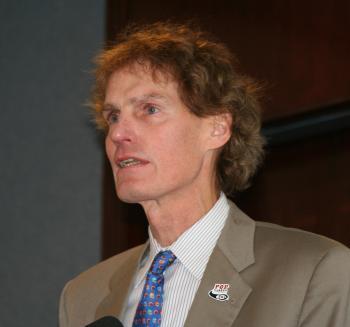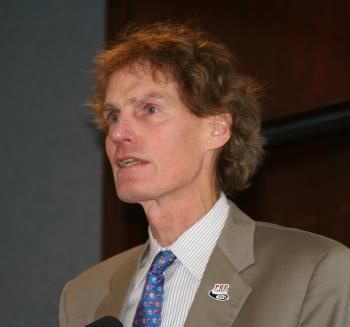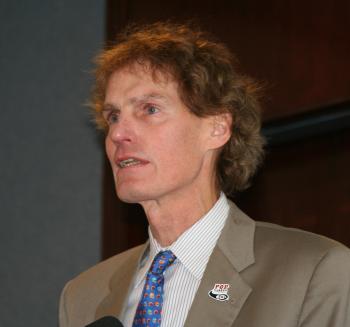Information on the qualifications of the million or so coaches in the country is lacking, but thanks to the 2008 National Coaching Report, we know something about the tremendous diversity of coaching requirements and standards across the nation.
“American sport programs are dominated by volunteer, well-intended but largely unprepared amateur coaches,” says the report.
The 160-page National Coaching Report was released August 6—two days before the beginning of the Beijing Olympics—at a news conference at the National Press Club. The National Association for Sport and Physical Education (NASPE) published the annual report and sponsored the news conference.
“Parents across the country send their children to practices and events with the expectation that adult supervision will bring positive sport outcomes, maximum learning and skill development. Yet horror stories persists about dramatic increases in winning-obsessed parents, sport injuries, over-specialization of young athletes, and children quitting sports because they simply aren’t fun anymore,” said NASPE President Fran Cleland, professor of kinesiology, West Chester University, PA at the news conference.
At the news conference, Jon Butler could speak from his experiences at Pop Warner Little Scholars. Butler spent six years as a high school assistant football coach and one year coaching Catholic Youth Organization. He said that the old days of someone, with some athletic experience in their youth, coaching youth was now obviously out-of-date.
He gave the example of coaching 8 or 9 year-olds the “Liberty” position in cheerleading, where the youngster is held up by her teammates. He noted that cheerleading has become “tremendously more gymnastic and athletic.” To coach the children for this example requires that the coach know something about the fundamentals of coaching.
“There has to be a teaching progression. Think of the fear-factor, think of the risk-factor. There has to be a teaching progression involved,” said Butler.
Coaches have enormous influence on performance, likelihood of injury, and whether the child finds the sports experience positive or negative.
When a child’s first sports experience is negative, the odds are high that he or she won’t want to continue in sports activities. And the coach has a lot to do with determining whether that first experience was a positive one, according to the news conference speakers, who often spoke of preparing coaches to provide their charges “a quality sport experience.”
“I know that many Olympic positive athletic experiences were a result of the influence and impact of their coaches,” said Professor Cleland.






